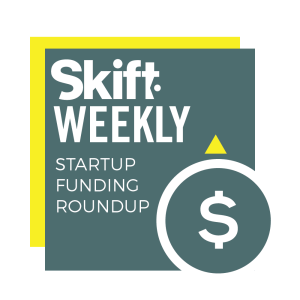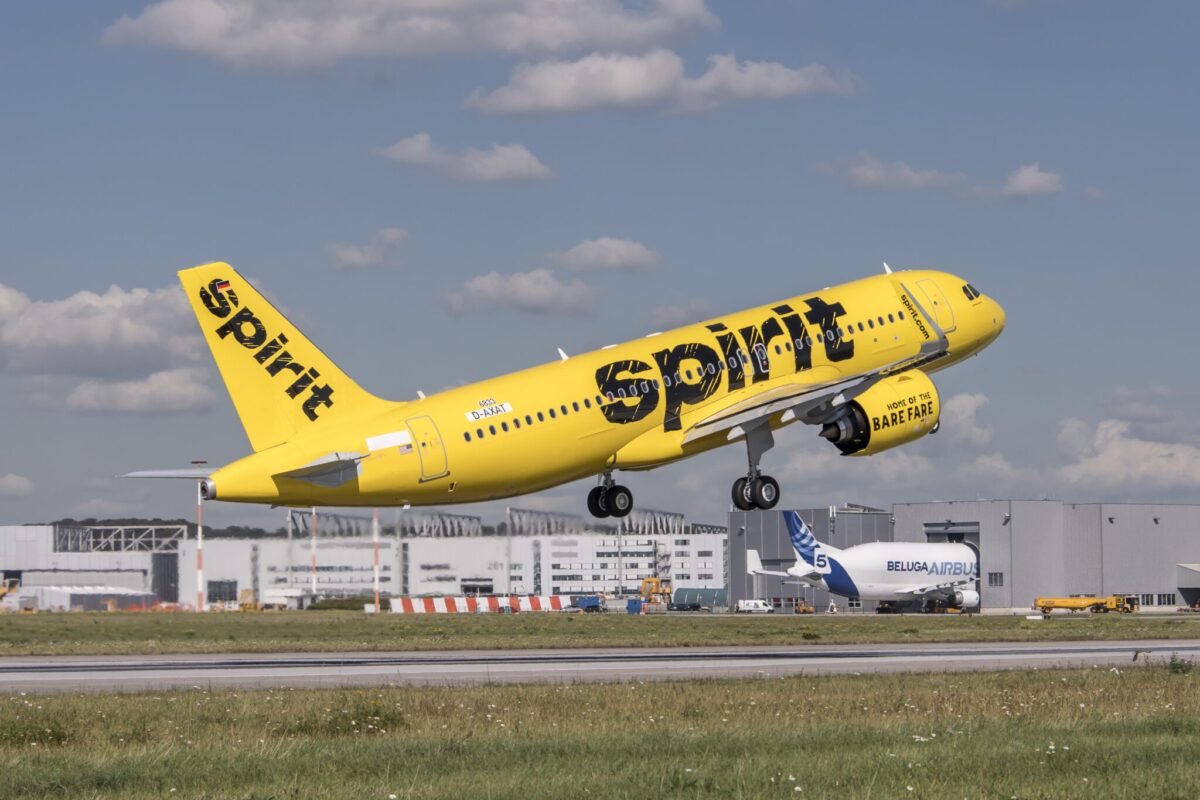Travel Startups Raise $1.1 Billion in Past Two Weeks

Skift Take

Travel Startup Funding This Week
Each week we round up travel startups that have recently received or announced funding. Please email Travel Tech Reporter Justin Dawes at jd@skift.com if you have funding news.It's been a huge couple of weeks for travel startups. Eight of them announced $1.1 billion in funding over the past two weeks.
Most of that came from Wayve, which raised just over $1 billion for its robotaxi technology. Other significant raises — though not as high as $1 billion — went to companies in travel insurance and renewable jet fuel. And some smaller fundings went to a new luggage brand and a company 3D printing interior airplane components.
Wayve: $1 Billion
Wayve, which is testing self-driving cars meant for ride-hailing and other purposes, has raised $1.05 billion in a series C funding.
The round was led by SoftBank Group, with support from Microsoft and AI chip company Nvidia.
Some of SoftBank’s other travel and transportation investments include Uber, China rideshare app DiDi and its robotaxi venture, WeWork, Oyo, GetYourGuide, Klook, and Yanolja.
UK-based Wayve is developing a type of artificial intelligence meant to improve the way that autonomous cars and robots interact with the world. The company said it envisions a future where AI enables vehicles to drive fully autonomously, an upgrade from today’s AI-assisted driving models.
The company’s primary customers are automakers and vehicle fleet owners. The company believes there’s an opportunity for working with the growing ride-hailing industry in London. It’s also focused on the parcel and grocery delivery industries.
Wayve has been testing its technology in cars on the road in the UK since 2018, particularly in partnership with grocery delivery services.
“AI is revolutionizing mobility. Vehicles can now interpret their surroundings like humans, enabling enhanced decision-making that promises higher safety standards. The potential of this type of technology is transformative; it could eliminate 99% of traffic accidents,” said Kentaro Matsui, managing partner of SoftBank Investment Advisers, in a statement.
Cover Genius: $80 Million
Cover Genius, a platform that travel companies use to provide insurance to customers, has raised $80 million in series E funding.
Spark Capital led the round, with support from Dawn Capital, King River Capital, and G Squared.
New York City-based Cover Genius offers services to companies in travel and multiple other industries. The services allows the companies to offer insurance coverage to customers, sold separately or as part of a bundled package.
Services include “cancel for any reason” protection and instant payments for approved claims in more than 90 currencies, the company says. Other travel insurance options cover airfare if an airline goes out of business, emergency medical assistance for extended stays, personal electronics for business travelers, and baggage delays.
Travel clients include Booking Holdings, Ryanair, Skyscanner, Icelandair, Uber, Agoda, Etraveli, Despegar, Hopper, HomeToGo, Volaris, Spirit, EaseMyTrip, and others.
The company also works with live entertainment companies including SeatGeek to provide insurance to customers for ticketed events, as well as various types of rideshare services.
The funding will go toward growing business, adding services, and strengthening the tech, including the insurance distribution system and AI-powered claims handling.
LanzaJet: $20 Million
LanzaJet, a renewable jet fuel company, has raised $20 million from Groupe ADP.
The Illinois-based company says its technology can convert low-carbon ethanol to jet fuel. The company in January opened a small-scale plant in Georgia that it says can produce 10 million gallons of fuel per year from sources including feedstock waste.
LanzaJet in March raised $30 million from Southwest Airlines and is working with a Southwest-owned company that makes renewable ethanol.
LanzaJet has a goal of one billion gallons of SAF production by 2030.
Hometime: $6.6 Million
Hometime, which manages vacation-rental properties that list on Airbnb, has raised $6.6 million (10 million Australian dollars).
Fifth Estate Asset Management led the round, with support from AS1 Growth Partners, NAB Ventures, Asia Principal Capital, and OneVentures.
Sydney-based Hometime says it manages all aspects of vacation rental businesses on behalf of owners based in Australia and New Zealand, including listing on Airbnb, guest management, cleaning, styling and photography, and more.
The funding will go toward growing the brand organically and by acquiring other local operators.
Naya Homes: $3.1 Million
Naya Homes, a property manager for vacation rental owners in Mexico, has raised $3.1 million.
The round was led by Primary Venture Partners, with support from BBG Ventures and other investors.
Naya Homes says it manages multiple aspects of vacation rental properties for owners, including listing management for multiple booking sites, cleaning and maintenance.
The startup manages more than 400 properties in Mexico, including in Puerto Vallarta, Riviera Nayarit, Los Cabos, and Mexico City. The company plans to expand into 10 other Mexican cities, including Cancún and Playa del Carmen.
You. Smart. Thing.: $1.5 Million
You. Smart. Thing., which helps companies suggest low-carbon travel routes for customers, has raised $1.5 million (£1.2 million).
West Midlands Co-Investment Fund led the round, with support from several angel investors, including a former executive of the route suggestion app Citymapper.
The England-based startup said managers for destinations, venues, and live events can contract its service for use by consumers. Users input their origin and destination, and the service suggests personalized routes. They can include options meant to be more environmentally friendly, with tech that estimates and tracks carbon output. And disabled users can request more accessible routes.
The Birmingham 2022 Commonwealth Games contracted the service, which led to 10% of users for the event requesting accessible routes, the startup said.
Icon: $1.2 Million
Icon, which makes luggage and travel accessories, has raised $1.2 million in seed funding.
DSG Consumer Partners led the round, with support from a group of angel investors.
India-based Icon says it targets the “mass premium segment” of the growing number of Indian travelers. Products include hard luggage, backpacks, and handbags.
The funding will go toward adding new products, hiring, and growing business.
AM Craft: $652,000
AM Craft, which provides manufacturing services for the airline industry, has raised $652,000 in pre-seed funding.
Change Ventures led the round, with support from Bad Ideas Fund.
Latvia-based AM Craft designs, makes, and delivers airplane interior components for seats, overhead bins, and more. The company uses a 3D printer to make the products and has a library of pre-approved parts.
| Company | Stage | Lead | Raise |
|---|---|---|---|
| Wayve | Series C | SoftBank Group | $1.05 billion |
| Cover Genius | Series E | Spark Capital | $80 million |
| LanzaJet | Unspecified | Groupe ADP | $20 million |
| Hometime | Unspecified | Fifth Estate Asset Management | $6.6 million |
| Naya Homes | Unspecified | Primary Venture Partners | $3.1 million |
| You. Smart. Thing. | Unspecified | West Midlands Co-Investment Fund | $1.5 million |
| Icon | Seed | DSG Consumer Partners | $1.2 million |
| AM Craft | Pre-seed | Change Ventures | $652,000 |
Skift Cheat Sheet
Seed capital is money used to start a business, often led by angel investors and friends or family.
Series A financing is typically drawn from venture capitalists. The round aims to help a startup’s founders make sure that their product is something that customers truly want to buy.
Series B financing is mainly about venture capitalist firms helping a company grow faster. These fundraising rounds can assist in recruiting skilled workers and developing cost-effective marketing.
Series C financing is ordinarily about helping a company expand, such as through acquisitions. In addition to VCs, hedge funds, investment banks, and private equity firms often participate.
Series D, E, and, beyond These mainly mature businesses and the funding round may help a company prepare to go public or be acquired. A variety of types of private investors might participate.





